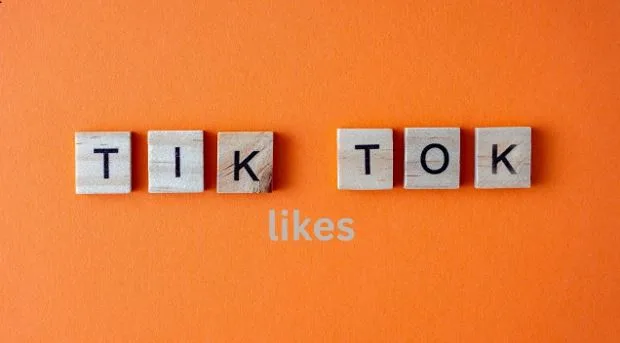How Social Media Can Hurt Your Personal Injury Case
Social media has become an essential part of daily life, allowing people to share updates, stay connected, and express themselves freely. However, after a serious accident, the same platforms that help friends stay in touch can unintentionally damage a legal claim. What seems like an innocent photo, comment, or check-in can be taken out of context and used against an injured person in court or during insurance negotiations. Understanding how social media activity can harm a personal injury case is essential for protecting one’s credibility and right to fair compensation.
The Role of Social Media in Legal Cases
When someone files a personal injury claim, every aspect of their life can come under scrutiny. Insurance companies, defense attorneys, and investigators often review social media profiles to find inconsistencies in the injured person’s story. Even when posts are private, opposing parties may obtain access through subpoenas or mutual connections.
A simple photo or post may appear harmless, but it can be misinterpreted to suggest that the injuries are not as serious as claimed. For instance, a picture taken at a family event or a comment about feeling “better today” might be used to argue that the person has fully recovered. These tactics are common in personal injury defense and can have a significant impact on settlement discussions or trial outcomes.
How Posts Can Be Misinterpreted
Social media lacks context. Photos and short captions often fail to capture the full story behind them. A person smiling in a picture may still be in pain or attending an event only for moral support. Unfortunately, opposing attorneys can use such images to question credibility and reduce the perceived severity of injuries.
Even unrelated content can raise doubts. Posts showing travel, exercise, or social activities can be presented as evidence that the claimant’s lifestyle has not changed significantly. Comments from friends congratulating someone on looking “great” or appearing “active again” may also be cited as proof that the injury was exaggerated. Once these impressions are made, correcting them can be difficult.
Privacy Settings Are Not Foolproof
Many people assume that using strict privacy settings protects them from scrutiny. However, privacy on social media is not absolute. Courts have ruled that online content is discoverable evidence, meaning it can be requested during legal proceedings. Opposing attorneys can also use screenshots shared by others or access mutual connections to view posts that were meant to be private.
It is best to think of everything posted online as potentially public. Even deleted posts can sometimes be recovered through digital forensics. For this reason, injured individuals are often advised to avoid posting about their case, medical condition, or daily activities entirely until the claim is resolved.
The Risk of Tagging and Third-Party Posts
Even if an injured person avoids posting, friends or relatives might share photos or updates that create misleading impressions. Being tagged in a picture or mentioned in a status update can still associate that person with certain activities. For example, if a friend tags someone at a party or hiking trip, it could appear that they were physically active despite claiming serious injuries.
Communicating with friends and family about the importance of privacy during a pending case helps minimize this risk. Asking others not to post or tag content until the case concludes can prevent misunderstandings that may harm credibility.
Check-Ins and Location Data
Many social media platforms automatically log location data or encourage users to “check in” at restaurants, gyms, or events. While these features are convenient, they can also be used to question a person’s physical limitations. If someone reports difficulty walking or traveling but is shown checking in at multiple locations, that information could be misused by insurers or opposing counsel.
Turning off location services and avoiding public check-ins during an open claim is a simple but effective precaution. This prevents unnecessary exposure of personal routines or whereabouts that could be misinterpreted later.
Sharing Details About the Case
Discussing the details of an ongoing legal claim online can create serious complications. Posts about the accident, conversations with insurance companies, or opinions about settlement offers can all be used as evidence. In some cases, sharing these details can violate confidentiality agreements or interfere with legal strategy.
Even expressing frustration or anger about the process can backfire. Defense attorneys may present such posts as proof that the claimant is exaggerating or acting out of emotion rather than fact. It is best to keep all case-related discussions between the claimant and their attorney.
The Impact on Credibility
Credibility is one of the most valuable assets in any personal injury case. Once an opposing party finds something that undermines a claimant’s honesty, it can influence how judges, juries, and insurance adjusters view the entire claim. Social media inconsistencies are often used to suggest dishonesty, even when the intent was innocent.
For example, if someone posts a photo taken before the accident but does not clarify the timing, the defense might imply that it shows recent activity. Even old posts can resurface if they appear inconsistent with current statements. Maintaining transparency and avoiding misleading content, even unintentionally, helps protect credibility throughout the process.
How Insurance Companies Use Social Media
Insurance companies have become increasingly sophisticated in using social media to investigate claims. They may hire private investigators or use automated monitoring tools to track online activity. Public profiles can reveal hobbies, social events, and travel patterns that appear inconsistent with claimed injuries.
Adjusters may also monitor for comments about settlements, legal strategies, or frustrations with the process. Any inconsistency between what is posted online and what is stated in official documents can be used to reduce settlement offers or deny claims altogether.
Steps to Protect Yourself Online
Injured individuals can take several steps to minimize the risk of social media harming their case:
- Stop posting temporarily. Avoid posting new content until the claim is fully resolved.
- Review privacy settings. Restrict who can view old posts and prevent tagging from others.
- Avoid discussing the case. Never mention settlement amounts, injuries, or legal opinions online.
- Monitor friends’ posts. Politely ask others not to tag or mention you in updates.
- Consult an attorney before deleting content. Removing posts without legal guidance can be seen as destroying evidence.
Following these precautions ensures that social media activity does not inadvertently damage the case or delay recovery.
The Importance of Legal Guidance
Even careful individuals can make mistakes when it comes to managing their online presence during a lawsuit. An experienced personal injury lawyer can explain how to protect yourself legally while navigating the claims process. Attorneys understand how insurance companies use digital evidence and can advise clients on how to respond if their online activity becomes part of the investigation.
Legal guidance also helps injured individuals understand which types of documentation carry more weight than social media impressions. Focusing on medical records, witness statements, and professional evaluations ensures that valid evidence supports the claim rather than speculation from online content.
Staying Cautious Until the Case Concludes
Social media is a powerful communication tool, but it can also create unnecessary risks during a personal injury case. Even a single post or photo can be taken out of context and used to challenge the legitimacy of a claim. Maintaining privacy, being selective about online activity, and following professional advice are the most effective ways to protect one’s legal rights.
Once the case concludes, normal posting habits can resume without risk to the outcome. Until then, treating social media with caution helps preserve both credibility and peace of mind while working toward a fair resolution.





